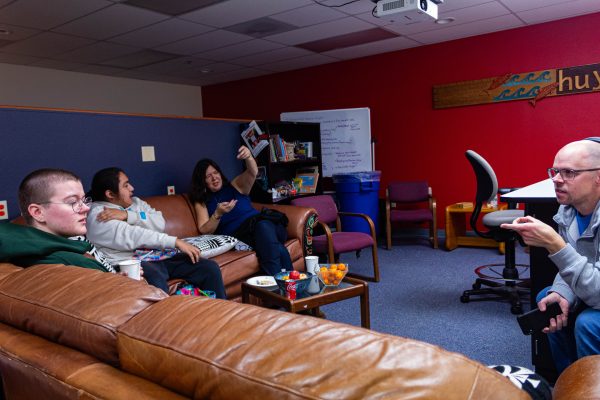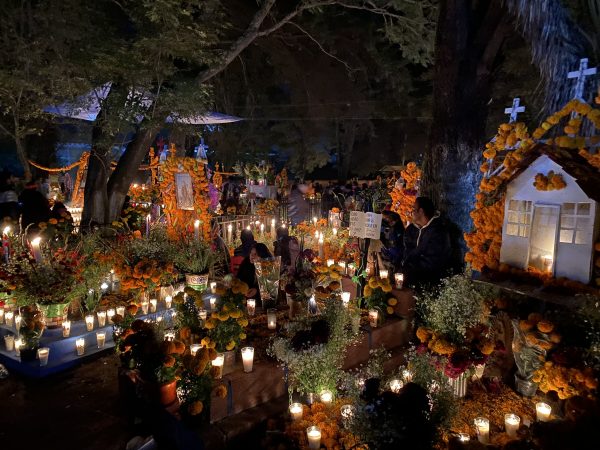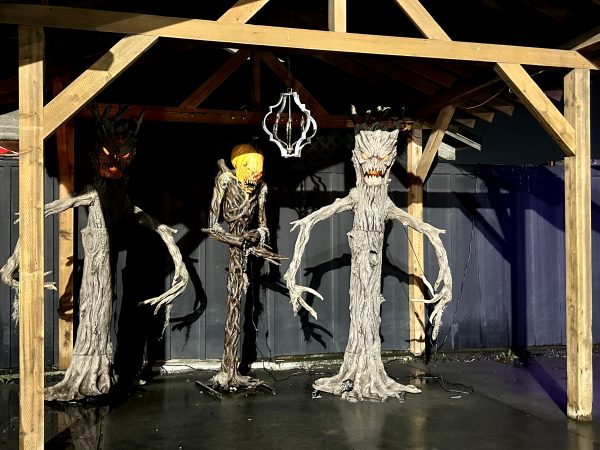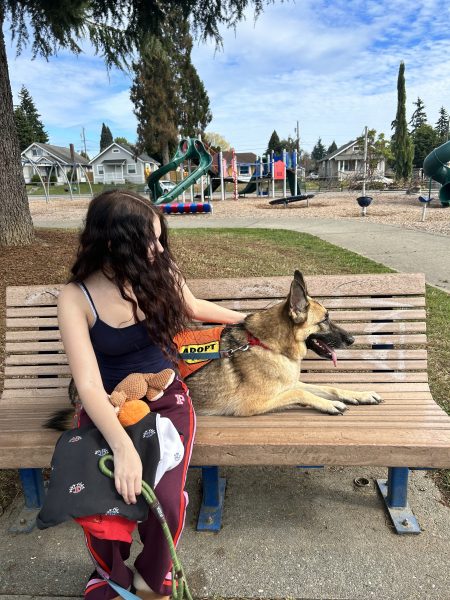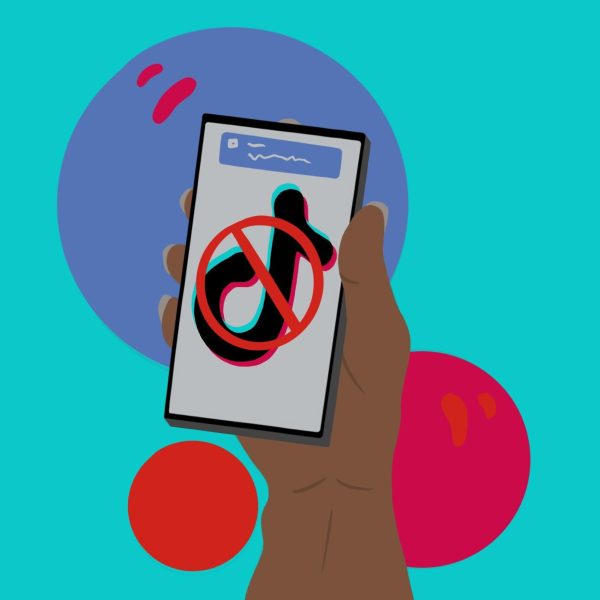EvCC Students React to Ferguson
Correction: Because of a editing error, Volume 71 Issue 3, the print edition was published with a mistake involving details of the grand jury’s decision in the Michael Brown vs Darren Wilson case.
On Nov. 24 a grand jury decided not to indict Officer Darren Wilson from Ferguson, Missouri. 18 year old Michael Brown was a Ferguson, MO local who was killed in an altercation with Officer Wilson. According to the New York Times, Brown and a friend were walking down the middle of Canfield Drive, Wilson ordered the two to get out of the street and the encounter soon turned into a physical altercation at the driver side of Wilson’s patrol car. It is unknown as to why the two started fighting, but it is fact that shots were fired. The end of the confrontation is more of a grey area, being that some witnesses say that Brown was trying to surrender and others say that he was still trying to attack.
Hours before the ruling, EvCC student Matthias McFarlane was asked about a possible indictment or conviction. “I don’t believe so, based on what happened with the Rodney King trial, and the Trayvon Martin case that was not to long ago, I don’t see why this would be any different.”
On Oct. 31 Run the Jewels, who are is reviewed in this issue, performed on The Late Show with David Letterman; at the end of Killer Mike’s verse, the two did the “Hands Up, Don’t Shoot” stance, made popular by the protests and social media trends that followed the death of Michael Brown.
Bethany Spangler, an EvCC student commented on the events that have unfolded, “I think the fact that now we have three different cases that seem like the same situation, says a lot about our society. Its just really sad.”
During protests the Ferguson police department reacted with vehicles and equipment. Shawn Gordon, an EvCC student said that he had a big problem with this issue.
“That’s not the energy you need to be putting out there or else you’re going to get a lot of negative feedback,” said Gordon, “you’re going to have a lot of people feel that that’s not right and maybe you would actually create the riot that you’re trying to prevent with all these weapons.”
During the events that took place, social media was very adamant with #Ferguson and #MikeBrown generating awareness and reaction to the social climate of the news media and the details of the protests. According to Abe Rodriguez-Hernandez, a program director for the Diversity and Equity Center, there are pros and cons to this activism, “It’s awareness and exposure, It’s definitely a process that leads to action, while at the same time it enables, quote on quote ‘fake activism’ or ‘hashtag activism.’ Hashtagging, ‘Justice for Mike’, does not then create justice for Mike,” he said, “I think it’s beautiful that you’re willing to have access to that information live. Lots of people are reporting, whether it’s blogs, newsletters, Facebook, all these different things. I think we need to ask what is the credibility of these sources. I think what it does is create an abundance of exposure and awareness to specific issues. I think from that, ideally, we would see more action based initiatives, how do we now, as conscious/aware individuals, have a plan of action to change that, not just talk about it through Facebook feeds and Twitter.”
Hernandez’s overall thoughts of, not just Brown’s death, but also of recent deaths of black men at the hands of police, are that these types of incident have been happening all of our lives and that we should not polarize these incidences into a racial debate.
When asked toward the end of the interview on how citizens can keep up a good relationship with the police and other public servants, Hernandez said, “I think it’s the responsibility of both parties, whether it’s elected officials, police officers, corrections officers, what ever it may be. To engage in their communities as human beings prior to being police officers: to engage as parents, as coaches, church gong folk, whatever. I’m not saying that they currently don’t, but I’m saying that there’s been, historically, a disconnect. What I’m saying is, I do not know how a community member could kill another person from their community.”
John Stewart, director of the Criminal Justice Department and 27 year veteran of Everett police department said via email, that law enforcement students and police officers are taught that a good relationship with a community is essential. A key word for community relationship building is Community Policing, according to Stewart this is “…a strategy of policing that focuses on building ties and working closely with members of the communities. Community Policing shifts policing focus from only responding to individual incidents to proactively addressing the underlying cause of criminal activity using problem solving techniques.”
Stewart was then asked what a citizen can do if they feel that they have been mistreated by a police officer.
“Police departments have a thorough policy of consistently handling complaints, successful resolution requires patience, a respectful response, and the right attitude on the part of the supervisor receiving the complaint,” said Stewart, “A citizen may file a complaint with the police command officer (rank of sergeant or higher) who will interview the citizen about their complaint. The officer will ask questions about what happened. It is possible that the command officer may be able to explain the officer(s)’ actions to a citizen’s satisfaction. Many police departments have specific personnel assigned to receive and investigate citizen complaints. All complaints are investigated thoroughly and all findings are based upon the evidence developed during the investigation.”
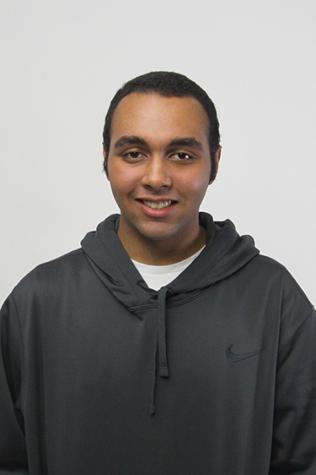
How did you get here?
I graduated from Mariner High School in 2013 with a newspaper club back ground. I started attending EvCC the following fall...

